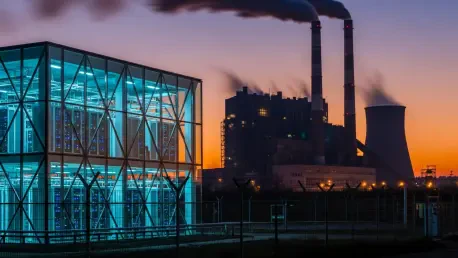
The global oil market has been thrust into a period of significant volatility, with West Texas Intermediate (WTI) crude prices plummeting to levels not witnessed since 2021, marking a stark reversal from previous highs. This dramatic downturn, which has pushed year-to-date losses beyond the 20%

The global effort to limit planetary warming to 1.5 degrees Celsius has decisively shifted from a challenge of technological innovation to a raw conflict of political will and socioeconomic power. At the heart of the climate crisis lies a fundamental struggle between competing class interests,

In a world grappling with the environmental legacies of industrialization, the persistent issue of acid mine drainage (AMD) represents one of the most significant and widespread challenges, with South Africa alone discharging nearly 400 million liters of this toxic byproduct from active and

The American coal industry, long considered to be on an irreversible path toward extinction, has found an unexpected and powerful ally in the form of the artificial intelligence boom. While the fundamental forces of economics, regulation, and superior technology continue to push coal-fired power

In the very heart of a region grappling with the aftermath of a devastating hurricane, a high-level dialogue recently unfolded, casting a stark light on the growing chasm between the climate pledges made on the global stage and the urgent reality faced by the world's most vulnerable nations. The

The year 2025 is now recognized as a fundamental turning point in the global approach to climate change, a moment when the established order of international cooperation was decisively upended. With the United States, under a renewed Trump administration, conspicuously abandoning its leadership